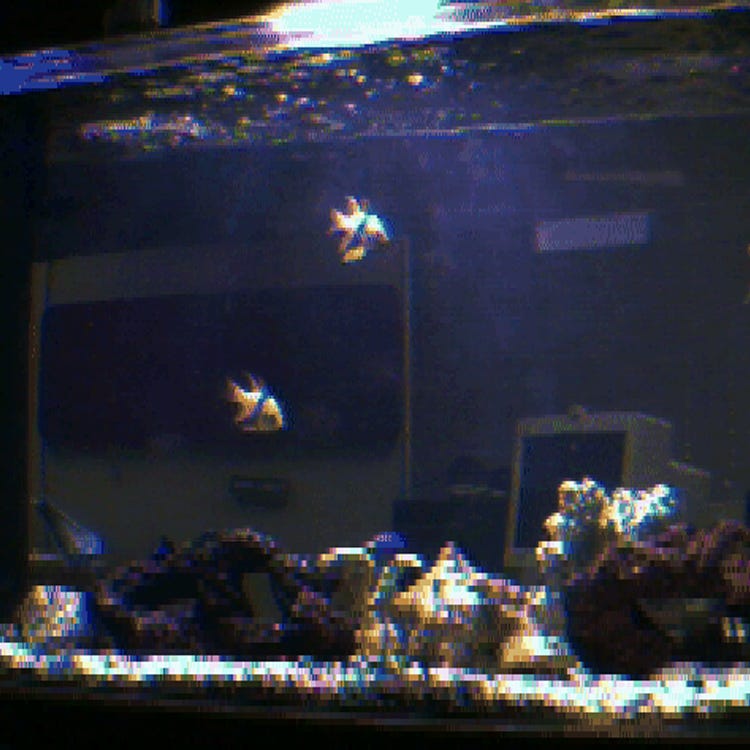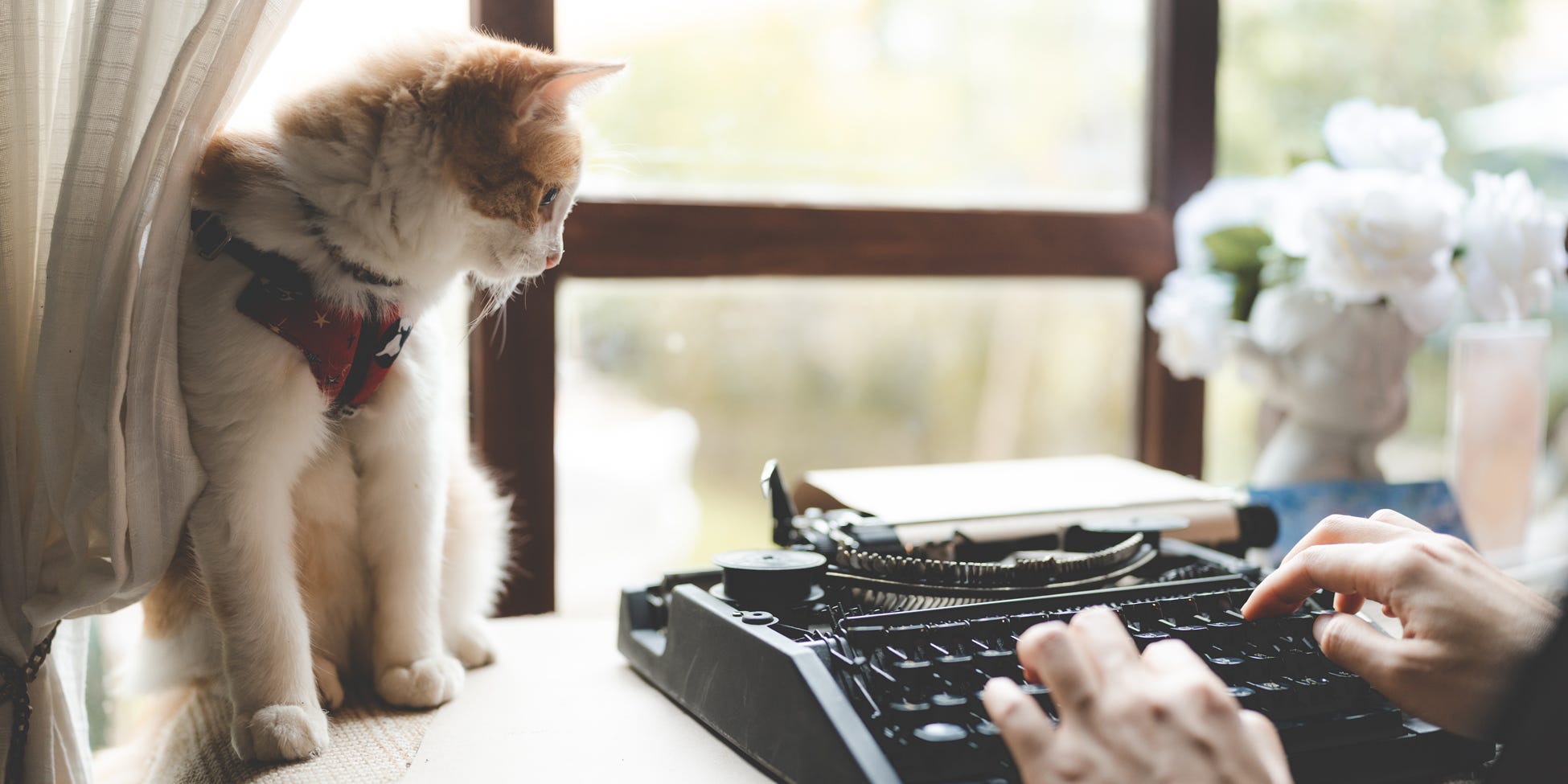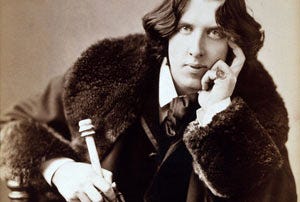✍️ How to Inspire Your Curiosity
or, Curiosity May Have Killed the Cat, but It Caters to the Creative
I listened to the audiobook version of Big Magic by Elizabeth Gilbert over the course of a few days.
As I’ve said before, I agree with most of what she says, though only as analogy. “Big magic” in my creative life is filled with coincidences and synchronicities. For example, literally hours after I listened to Gilbert’s account of Anne Pachett, I found out that Pachett will be at Writers on Woody Point, and annual writers’ festival in Newfoundland. I wasn’t researching Pachett. I was looking for new podcasts about writing, somehow stumbled on Writers on Woody Point (a gathering I’d vaguely heard of before), and saw her name.
Magic, says Gilbert.
Coincidence, says I.
Depending on your viewpoint, that’s a minor or major sticking point. (FWIW, I think it’s minor.)
No matter what Gilbert’s conclusions about the source of creativity, I’m 100% on board with her ideas about reducing fear and boosting creativity.
The section on curiosity in Big Magic struck me in particular, mostly I think because I haven’t consciously thought about it before. Gilbert talks about the critical role of curiosity to the creative mind. Like Gilbert, I believe curiosity is crucial to creativity in general and writing in particular. Learning all you can about subjects dealt with in your writing will give your piece authenticity.
But can curiosity be taught? Or is it a natural drive that you either have or don’t?
In another serendipitous moment, I remembered an upcoming book by a friend of mine, Joanne Hudspith, called The Power of the Pause. In it, she talks about deliberately stopping at certain moments and asking questions. “Get curious” as she calls it.
That’s when everything non-magically fell into place for me…
Can We Inspire Our Own Curiosity?
I’m not convinced that curiosity can be taught (though I’m open to the idea). However, I do think we can train ourselves to ask questions at certain points. Maybe we can inspire our curiosity deliberately and turn it into a habit.
Here’s a non-writing, non-exact example. About 2,782 times a week, I’ll be talking with someone and we’ll be trying to remember if, say, the New Jersey Devils won the Stanley Cup in 1995, or if it was the New York Rangers. We’ll scratch our heads before one of us says, “Hey! Why don’t we Google it?!?”
Then we Google to find out it was the Devils – and then repeat the process seven minutes later.
In other words, we’re training our brains to think about Googling it – something I’ve noticed the younger generations have no problem with!
Why is this important for writing? I think the natural inclination of the writer is to imagine a situation. I know I’ve been guilty of it. But artistic licence only goes so far – your own experiences can only fill in so many gaps.
My favourite (or most infuriating) example is the movie Leap Year, which takes place in Ireland on February 29. The MCs do things like pick fresh vegetables – in February – get dropped off a ferry into the Irish Sea so that they can clamber up a beach – in February – and attend an outdoor wedding – in February. Have the writers of this movie even been to Ireland?
Thankfully, this travesty is an extreme example and not the norm. But let’s examine what might be a more realistic example:
If I was a typewriter repairman, what would I do if I needed a part but the supplier I deal with just closed down?
Where to Spark Your Curiosity
There are a ton weird and wonderful facts just lying along the side of the Information Superhighway, waiting to be picked up. Some finds of mine:
The Wander Society – a secret and meta and possibly defunct society of people eschewing technology in favour of nature, walking, and Walt Whitman.
AirMail – an upscale newsletter by ex-Vogue editor and co-Canadian Graydon Carter.
FinchXO – an Instagram poet of sorts.
Stone Club – a group of stone monument enthusiasts in the UK.
Smoke Forecast – pretty self-explanatory.
The Amazing FishCam – very dated now, but this was one of the first roadside attractions of the Internet. (You mean I can watch a live web stream of someone else’s aquarium in ultra-low and over-saturated 640x480 resolution updated every 60 seconds? Sign me up!)

I stumbled on all but one of these through rabbit-hole research: following one bit of info to another. But you can deliberately “get curious” to find that all-important background on what you’re trying to write.
It starts by realizing that research will be helpful. Let’s take the typewriter repair expert story example. But there’s a problem: you’ve never used a typewriter in your life, never mind fixed one. You can imagine it. But to make your piece more realistic, why not learn how it’s actually done?
Find videos. Videos are probably your first best bet. You can actually see and hear the typewriters, get insider points on how to fix one, and learn a lot about the experts making the videos as well. Here is a list of 143 videos about typewriter repair on YouTube .
Read books. Yes, typewriter repair manuals still exist, like this one. You might find one in your local used book shop, too. I also came across this novel.
Find websites and clubs. Here’s a Facebook group, which seems pretty open to questions about typewriters.
Find Reddit and similar groups. Reddit in general is a treasure trove of community-sourced information. Not only can you ask questions, you can glean a bunch from just reading other peoples’ posts and comments. Here’s one subreddit on typewriters.
Watch documentaries. Documentaries are similar to YouTube videos, but perhaps with better production values, presentation, and reach. The inspiration for the typewriter repair theme came directly from watching California Typewriter for the second time…
Buy and use the item, if possible. There’s nothing like doing it yourself! Typewriters are still readily available and can be had fairly cheaply at a local flea market, yard sale, or even Facebook Marketplace. Buy one. Use it. Better yet, buy a broken one and find out how to fix it. Learn the tips and tricks of going from a broken piece of junk to a lean, mean machine. This will add authenticity to your piece like nothing else.
These are just a few ideas for you to immerse yourself in the world of that character. But how much of that world do you need to learn? Ultimately, it depends on the piece itself. For example, if typewriter repair is integral to the story, you’ll have to delve deeper in your research. If the character just happens to be a typewriter repair expert and most of the story happens outside the shop, maybe a shallow dive is fine. Either way though, learning more about your subject leads to a more authentic experience for your reader.
Key Takeaways: Curiosity fuels authenticity. But if it doesn’t come naturally to you, there are still ways you can spark it. Realize that you need to learn more about the world of your characters or the piece itself, and immerse yourself in it. Read, watch videos, and get hands-on if possible. Do everything you can to better understand the world so you can add realistic details – and avoid pitfalls like picking vegetables from the garden in the dead of the Irish winter.
Over to You: Do You Naturally Enjoy Research?
Is curiosity a problem for you? Have you found other ways to make your writing more authentic? Is research a pleasure or a necessary evil for you? Let us know in the comments below!
I’ll leave you with the full California Typewriter documentary featuring a couple of cameos by Tom Hanks. It’s an interesting look into new ways of reviving old technology.
Lastly, I had a guest post over at On Repeat Records about the Tragically Hip’s first full-length album, Up to Here. I had a lot of fun writing it, and listened to the album in its entirety for the first time in decades. What a great debut! You can check out why I think Up to Here is the best and most important album of 1989 here. Actually, check out the whole newsletter if you’re into rock and related music. A big thanks and shout-out to Kevin Alexander at On Repeat Records for publishing the piece.
Until next time, keep writing with wild abandon!
~Graham
email me if you get lost.






Even in July, I would not jump in the water off the coat of Ireland.... brrrr .... And now you've reminded me that I need to clean that 1950 Underwood, in perfect working order. It needs a new ribbon though.
Another thought provoking column Graham. I am in the "born with curiosity" column. I love nothing more than researching & finding info & solutions...Google and the internet just make it easier than ever. I have two adult sons. The older one wouldn't research something to save his life. The younger one inherited my genes (obviously LOL) & is always eager to find out all he can on whatever subject peaks his interest. Your typewriter examples are brilliant! Wish I still had my old Corona...wait, my younger son has it. Go figure!